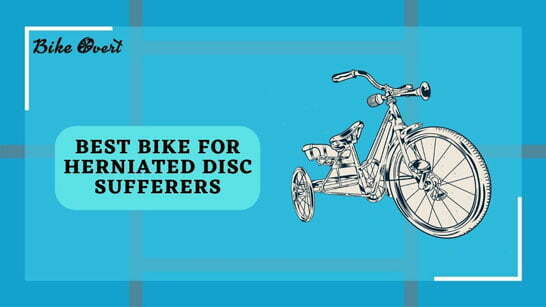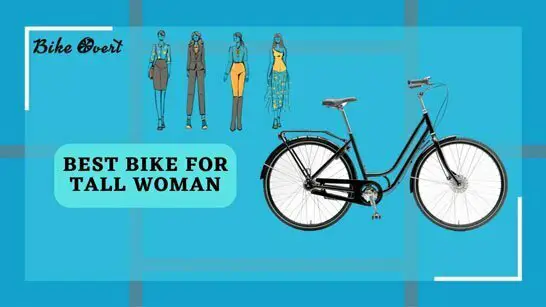Hardtail mountain bikes are great for cruising around town or commuting, but they’re not the best choice for serious off-road riding. Full-suspension mountain bikes are much better equipped to handle rugged terrain, but they’re also more expensive and require more maintenance. Which is the right bike or when should I switch from hardtail to full-suspension? Here’s a guide to help you decide.
Types of your riding style

If you’re into mountain biking, then you’ve probably heard of the different types of suspension available on the market. Hardtails and full-suspension bikes are two of the most common options, with hardtails being more popular a few years ago and full-suspension bikes becoming more popular now.
The type of suspension you choose for your mountain bike depends on the type of riding you do. If you mostly ride trails, then a hardtail is a good option because it’s more efficient and easier to pedal. If you ride downhill or in other extreme conditions, then a full-suspension bike is a better choice because it provides more stability and absorbs shocks better.
So which one should you choose? It really depends on what you want to get out of your mountain biking experience.
What is your skill level?

If you’re a beginner mountain biker, you’ll want to stick with a hardtail bike. A full-suspension bike will only slow you down and make it harder to learn the basics of mountain biking. Once you’ve mastered the basics and started to develop some skills, then you can think about upgrading to a full-suspension bike.
But even if you’re an experienced mountain biker, there’s no guarantee that a full-suspension bike is right for you. It all depends on your skill level and what type of terrain you’re riding. If you’re mostly riding smooth trails, a hardtail will be more than adequate. But if you’re riding more challenging terrain, a full-suspension bike will give you more control and allow you to ride faster.
Consider the weight of your bike that suits you

When you’re choosing a mountain bike, there are a lot of factors to consider. One of the biggest decisions is whether it’s important to think about your bike weight.
A hardtail is going to be lighter than a full-suspension bike, so it’s important to think about how much you want to carry around with you. If you don’t mind the extra weight, then a full-suspension bike is definitely the way to go. But if you want something that’s going to be easier to carry around and more nimble on the trails, then a hardtail is the better option.
Ultimately, it’s up to you which type of bike you choose.
You should consider what your budget is
If you’re thinking of upgrading your mountain bike from a hardtail to a full-suspension, it’s important to consider what your budget is. A full-suspension bike can be more expensive than a hardtail, so make sure you know what you’re willing to spend before making the switch.
There are a lot of factors to consider when choosing a new mountain bike, and price is definitely one of them. If you’re on a tight budget, a hardtail might be the better option for you. Full-suspension bikes can be more expensive, and they often require more maintenance than hardtails.
But if you have the money to spend and are looking for a more comfortable ride, then a full-suspension bike may be the right choice for you. Just make sure you do your research and find the best bike for your needs and your budget.
Why should you switch from hardtail to full suspension?
There are a few reasons why you might want to switch from a hardtail mountain bike to a full-suspension model.
- Perhaps you’re finding that your hardtail is too harsh and uncomfortable on bumpy trails. Maybe you’re struggling to maintain traction and control on steep or technical terrain.
- It could be that you’re just not getting the most out of your bike because of the lack of suspension.
- Maybe you’re looking for a bike that’s more comfortable for long rides. Whatever your reason, switching to a full-suspension model can be the right choice for you.
If any of these issues sound familiar, then it might be time to consider making the switch to a full-suspension mountain bike. These bikes offer more cushioning and stability on rough trails, which can lead to a smoother and more enjoyable ride. They also provide more traction and control on steep climbs and descents, allowing you to tackle challenging terrain with ease.
Are there full-suspension bikes that are within budget?

The answer to this question is a resounding yes! There are many full-suspension mountain bikes on the market that are affordable. In fact, there are even some very good options for under $500. While you may have to sacrifice some features or performance in order to stay within budget, there are definitely bikes that will fit your needs.
What are the benefits you can get from a full-suspension bike?
There are many benefits you can get from owning a full-suspension mountain bike. Full-suspension bikes offer a smoother ride over rough terrain, which can lead to less fatigue and a better overall experience when riding. They also provide more control and stability, making them ideal for novice and experienced riders alike.
Additionally, full-suspension bikes often have better braking systems and more durable frames than their hardtail counterparts, making them a great investment for anyone looking to ride off-road.
Can you convert a hardtail to full suspension?
There are a few different ways that you can convert a hardtail mountain bike into a full suspension mountain bike. One way is to add a suspension fork to the front of the bike. This will give you some amount of suspension travel, but it will not be as effective as a full-suspension mountain bike.
Another option is to add a rear shock to the hardtail frame. This is a more effective way to convert your bike, but it can be expensive and it may not be as reliable as a full-suspension mountain bike.
A third option is to buy a complete full-suspension mountain bike and then sell your hardtail frame and components. This is probably the easiest and most affordable way to convert your bike.
Watch the video that shows you how to hardtail bike to full suspension bike:
Getting used to full suspension mountain bike
When you buy a new full-suspension mountain bike, it’s important to take the time to get used to it. This is especially true if you’re not used to riding a bike with rear suspension. Here are a few tips to help you adjust:
- Start by taking it for a short ride in your neighborhood. Get comfortable with the feel of the bike and how it handles.
- As you progress, start tackling some easy trails. Again, focus on getting comfortable with the bike and how it reacts when you go over bumps and obstacles.
- Once you feel confident, move on to more challenging trails. Just be sure to take things slow at first and build up your skills gradually.
Can you ride a full-suspension mountain bike on the road?
There are many opinions on whether or not you can ride a full-suspension mountain bike on the road. Some people say that it’s not safe to do so, while others believe that it’s perfectly fine. The truth is, it depends on the rider and the bike.
If you’re new to mountain biking, I would recommend starting out on a hardtail bike before making the switch to a full-suspension model. A hardtail bike is much easier to control on the road, and it will also be more comfortable when you’re riding over bumps and cracks in the pavement.
If you’re an experienced mountain biker, then you may be able to ride a full-suspension bike on the road without any problems. Just make sure that you’re aware of your surroundings and that you’re prepared for anything that might come your way.
Do I really need a full-suspension mountain bike?
There is no definitive answer to this question as everyone’s needs and preferences vary. However, there are some factors to consider when deciding if a full-suspension mountain bike is right for you. Some of them I am explaining:
- How often do you ride? If you only go out a few times a year, you may not need all the features and benefits that come with a full-suspension mountain bike. A hardtail (a bike with front suspension only) may be more affordable and just as suitable for your needs.\]
- What kind of terrain do you ride on? If most of your rides are on smooth trails, a full-suspension mountain bike may not be necessary. Again, a hardtail may be a better option.
Is a hardtail better than a full suspension bike?
There is no definitive answer when it comes to deciding if a hardtail is better than a full-suspension bike. Both have their own advantages and disadvantages. A hardtail is generally cheaper and lighter than a full suspension bike, making it a good option for novice riders or those looking for an affordable option. Hardtails are also easier to maintain and repair than full-suspension bikes.
However, full suspension bikes offer more comfort and can be better suited for more challenging terrain. Additionally, they can provide more stability on descents. Ultimately, the decision of which bike is better depends on the individual rider’s needs and preferences.
Which is faster full suspension or hardtail?
When it comes to mountain biking, there are a few different types of bikes to choose from: hardtail, full suspension, and fat bikes. Each one has its own strengths and weaknesses, which is why it’s important to know what you’re looking for before making a purchase. So, which is faster: a full suspension or hardtail?
This is a tough question to answer definitively because it depends on the terrain you’re riding and your own personal preferences. Generally speaking, though, a hardtail is going to be faster on smooth terrain while a full suspension will be better suited for rougher terrain. This isn’t always the case, of course – there are some skilled riders who can make any bike go fast – but it’s generally true.
If speed is your top priority, then you may want to consider opting for a hardtail.
Which is better upgrade your hardtail or purchase a new full-suspension mountain bike?
There are pros and cons to upgrading a hardtail mountain bike or purchasing a new full-suspension mountain bike. Some people believe that it is always better to upgrade a hardtail mountain bike, while others believe that it is always better to purchase a new full-suspension mountain bike.
There are several factors to consider when making this decision. The first factor is budget. It is usually cheaper to upgrade a hardtail mountain bike than to purchase a new full-suspension mountain bike. The second factor is experience. If the rider is inexperienced, it might be safer and more enjoyable to start out on a full-suspension mountain bike.
The third factor is the type of riding that will be done. If most of the riding will be done on smooth trails, an upgraded hardtail mountain bike may be sufficient.
Conclusion
In conclusion, it is important to consider when you should switch from a hardtail to a full-suspension mountain bike. A number of factors, such as your experience level, the trails you ride, and your budget, should be considered when making this decision. Ultimately, it is important to choose the bike that will best suit your needs and riding style. Thanks for reading!




